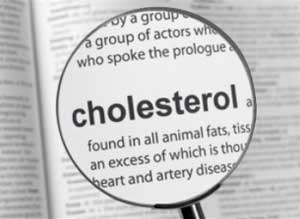- Home
- Editorial
- News
- Practice Guidelines
- Anesthesiology Guidelines
- Cancer Guidelines
- Cardiac Sciences Guidelines
- Critical Care Guidelines
- Dentistry Guidelines
- Dermatology Guidelines
- Diabetes and Endo Guidelines
- Diagnostics Guidelines
- ENT Guidelines
- Featured Practice Guidelines
- Gastroenterology Guidelines
- Geriatrics Guidelines
- Medicine Guidelines
- Nephrology Guidelines
- Neurosciences Guidelines
- Obs and Gynae Guidelines
- Ophthalmology Guidelines
- Orthopaedics Guidelines
- Paediatrics Guidelines
- Psychiatry Guidelines
- Pulmonology Guidelines
- Radiology Guidelines
- Surgery Guidelines
- Urology Guidelines
Raising HDL cholesterol fails to protect against heart disease

Increasing level of HDL cholesterol by blocking a key protein involved in its metabolism does not protect against heart disease or stroke, according to a large genetic study of 150,000 Chinese adults published in the journal JAMA Cardiology.
Dr. Iona Y. Millwood, DPhil & associates in this biobank study of 151 217 Chinese adults found that Increasing levels of high-density lipoprotein cholesterol by cholesteryl ester transfer protein inhibition in the absence of lower levels of low-density lipoprotein cholesterol may not confer significant benefits for cardiovascular disease.
The researchers in this prospective biobank study included 151 217 individuals aged 30 to 79 years who were enrolled from 5 urban and 5 rural areas of China from June 25, 2004, through July 15, 2008. All participants had baseline genotype data, 17 854 of whom had lipid measurements and 4657 of whom had lipoprotein particle measurements. Median follow-up of 9.2 years (interquartile range, 8.2-10.1 years).After ten years of follow-up, over 5,000 study participants had coronary heart disease and 19,000 had a stroke.
The researchers found that CETP genetic variants raised levels of HDL-C substantially, but did not lower LDL-C and did not lower the risk of cardiovascular diseases such as heart disease and stroke. There was also no effect on atherosclerotic plaques and thickness of the arteries, or on other conditions such as diabetes and kidney disease. However, the study found the increased risk of eye diseases as a possible adverse effect of CETP inhibition, a finding which is supported by other genetic studies in East Asian and Western populations.
In this study of genetic variants which alter CETP activity, raising HDL-C without also lowering LDL-C did not result in a benefit for heart disease or stroke. The study results complement findings from the recent REVEAL clinical trial of the CETP inhibitor anacetrapib, which found that beneficial effects of CETP inhibition for heart disease were more likely to be due to lowering 'bad' cholesterol LDL-C than raising 'good' HDL-C.2.
Observational epidemiologic studies have reported that low plasma concentrations of high-density lipoprotein (HDL) cholesterol are an independent risk factor for occlusive cardiovascular disease (CVD), including coronary heart disease (CHD) and ischemic stroke.Given these associations, therapeutic strategies to reduce CVD risk by increasing HDL cholesterol concentrations have attracted considerable interest
For more details click on the link: https://jamanetwork.com/journals/jamacardiology/fullarticle/2661813

Disclaimer: This site is primarily intended for healthcare professionals. Any content/information on this website does not replace the advice of medical and/or health professionals and should not be construed as medical/diagnostic advice/endorsement or prescription. Use of this site is subject to our terms of use, privacy policy, advertisement policy. © 2020 Minerva Medical Treatment Pvt Ltd